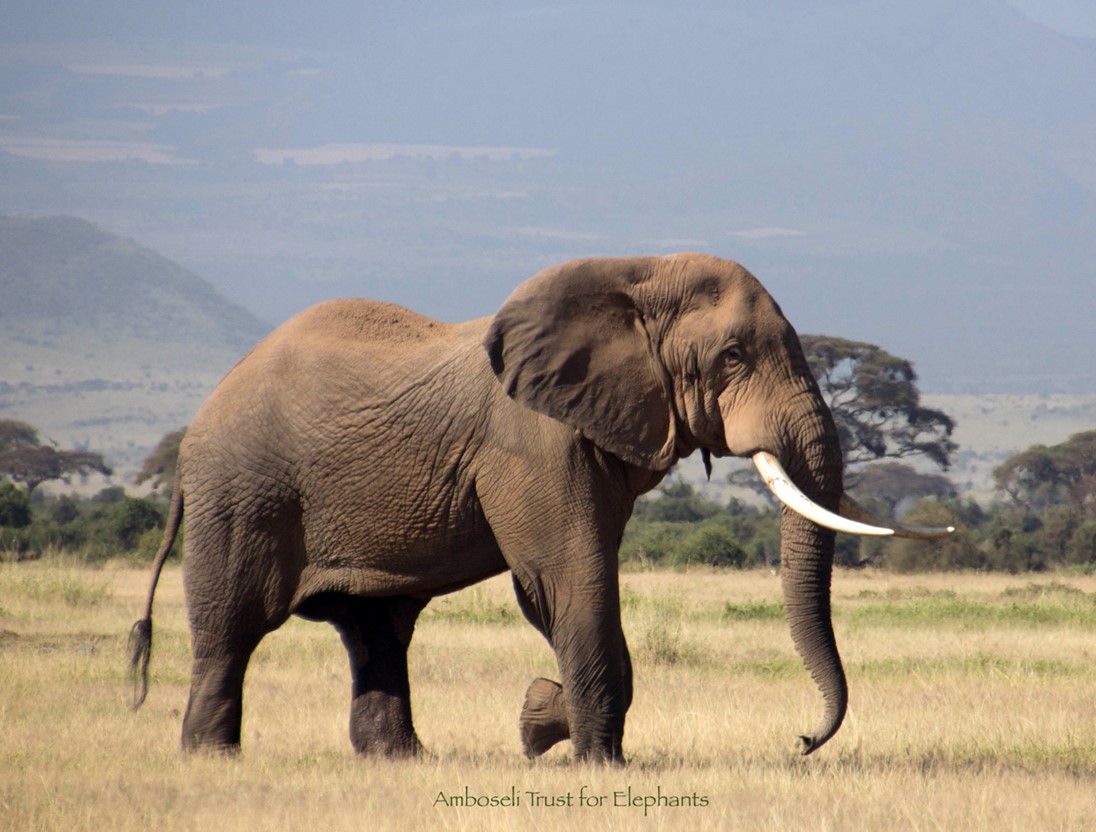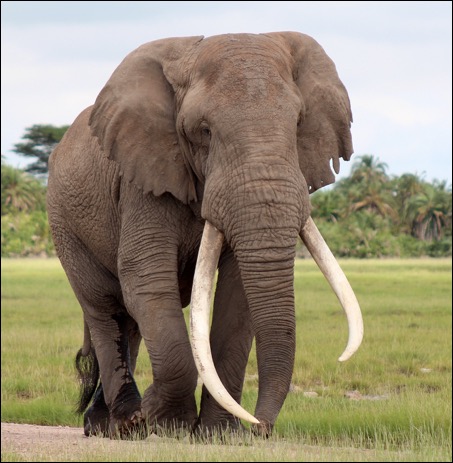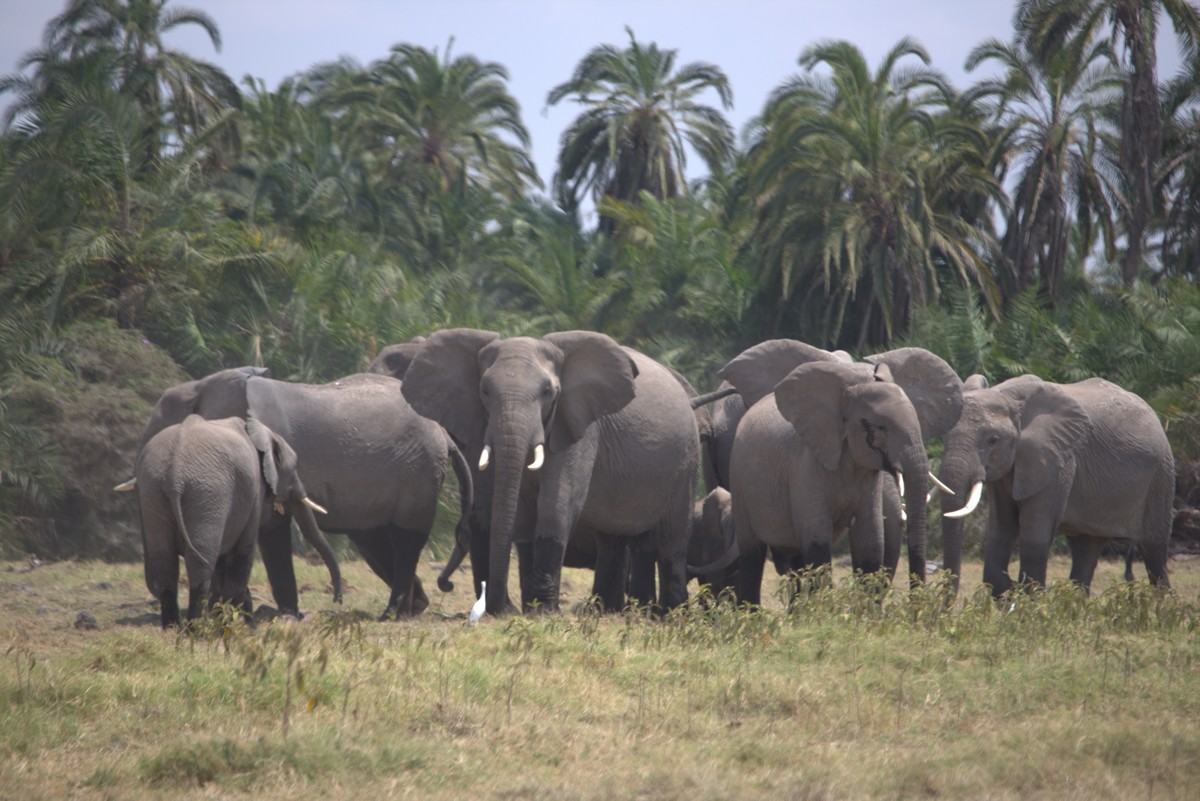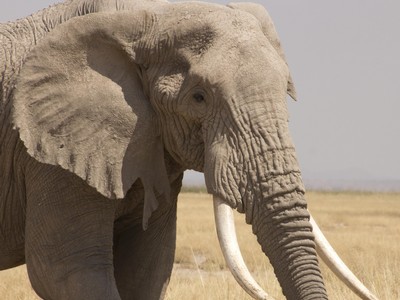Statement on Swaziland
October 26, 2015
We, the undersigned scientists, conservationists, elephant care, animal welfare and policy experts, are strongly opposed to the proposed import of 18 elephants from Swaziland by the Dallas Zoo in Texas, Henry Doorly Zoo in Omaha, Nebraska, and the Sedgwick County Zoo in Wichita, Kansas, for the following reasons:
1. The capture and removal of wild elephants for display in zoos is detrimental to elephants.
The forcible capture and removal of wild elephants from their home ranges and social groups is archaic and unethical. Elephants do not thrive in zoos. Most fail to breed, and an astonishing number of zoo-born elephant calves die young. The overall infant mortality rate for elephants in zoos is a staggering 40 percent – nearly triple the rate of free ranging Asian and African elephants.[1] Those who reach adulthood often display behavioral abnormalities and die of diseases and disabilities caused by captive conditions, such as arthritis and foot disease. Published research shows that bringing elephants into zoos profoundly impacts their health and viability.
2. There is no evidence to show that serious efforts have been made to keep the elephants in Africa.
The Kingdom of Swaziland and the Dallas Zoo and its partners have offered no evidence that they have seriously explored options for relocation of the elephants to other parks or sanctuaries within Africa, nor on what basis other options were rejected – even though in situ relocation offers real conservation value, the promise of minimal harm and distress to the elephants, and the prospect of a natural life. Claims that poaching, habitat loss, and other threats justify relegating these elephants to a lifetime in captivity in a foreign environment are self-serving; used to justify the capture and exports of these animals.
3. Threats to kill the 18 elephants unless permits are issued are unethical and represent outdated wildlife management practices.
Culling as an approach to the management of elephants has been abandoned or put on hold in all countries in southern Africa for two decades. A ban was instituted in South Africa in 1995, and although the ban was lifted in principle in 2008, it has never been resumed, under the strength of public opinion. Other, non-lethal management alternatives, including water point management, corridor creation and translocation are now accepted as best practice. For Swaziland to kill elephants it has decided are surplus would be a return to practices now considered outmoded by modern wildlife managers. Sadly, the zoos are leveraging these threats to facilitate import of the elephants to the United States.
4. The rationale behind the import – to create more room for rhinos – is highly questionable.
The “elephant range” in Swaziland consists mainly of two small fenced enclosures[2] comprising 6% and 19% of two fenced reserves (Hlane Royal National Park at 142km2 and Mkhaya Game Reserve at 65km2). These enclosures contain the country’s populations of elephants, numbering 19 and 13 respectively in 2012.[3] Essentially, the Swaziland elephants, which were introduced as orphans from culls in Kruger National Park, South Africa, between 1986 and 1994[4], are kept as a tourist attraction and symbol of national prestige. Since the elephants and their localized impact on vegetation are confined to small areas, it is incorrect to claim that they pose any significant threat to other wildlife, which range more widely in the major portions of the reserves. There is no information publicly available on the numbers of rhinos in the fenced elephant areas, nor any documentation of supposed habitat competition.
5. Zoos are capturing and importing wild elephants to restock a dwindling zoo elephant inventory, not to conserve the species.
Despite proof of the systemic failures of zoo practices and policies affecting elephants, the zoo industry has become more resolute in seeking out nations abroad from which to plunder elephants to restock zoo exhibits. This practice is an unacceptable consequence of the unnatural conditions provided by zoos, and should not be allowed to continue.
This importation serves no credible conservation purpose. None of the elephants or their offspring will be returned to the wild, the gold standard of conservation. Instead, it is intended to replenish the zoo industry’s dwindling African elephant population in the U.S.
Even if the zoos involved in the import would be successful in breeding the captured elephants, it still would not contribute to the conservation of the species. The view of the IUCN SSC Specialist Group for African elephants[5],[6] is that captive breeding makes no effective contribution to conservation, and the group does not endorse the removal of African elephants from the wild for any captive use. Neither of the IUCN Red Data list entries for Asian or African elephants lists captive breeding as necessary conservation measures.
6. The proposed import perpetuates poor conservation practices in Swaziland and promotes poor quality practices in other range States.
In 2003, San Diego Wild Animal Park in California and Lowry Park Zoo in Florida purchased 11 elephants from the Kingdom of Swaziland. Swaziland claimed it had too many elephants, and unless the sale went forward these 11 elephants would be slaughtered. Swaziland and the zoos promised that the money paid for the animals would be used to improve the country’s elephant conservation practices and policies. Despite this export, and with a total national population of 35 or fewer elephants,[7] Swaziland officials are again claiming the country has too many elephants and they are again threatening to kill elephants if the proposed sale to Dallas Zoo and its partners is thwarted.
The proposed killing of elephants to maintain small numbers in equally small compounds in Swaziland is not sound conservation, nor is exporting them for display in zoos. It is possible that the 2003 transaction, approved by the U.S. Fish & Wildlife Service, created an incentive for Swaziland to persist in its poor conservation approach.
We are also gravely concerned that sales of elephants, cloaked as conservation, wildlife management, or as “rescues,” could encourage other countries to engage in this practice. We have already seen one Association of Zoos and Aquariums (AZA) accredited zoo attempt to disguise its purchase of African elephants from Namibia as a rescue, only to have the import exposed as a commercial transaction.[8] This fabrication was never publicly condemned by the AZA.
7. A rhino program in Swaziland does not justify the harm caused to the elephants by being captured and exported to zoos.
As noted in point #4 above, there is no evidence that rhinos are threatened by elephant habitat change in Swaziland. However, the principle of conserving another species, even if threatened by elephants’ numbers, does not justify unconscionable conduct that includes tearing young elephants away from their mothers and social groups and incarcerating them for the rest of their lives. Contrary to the zoos’ callous contention that the ends justify the means, we believe both endangered species deserve the best, most humane solution available.
8. The import is a business transaction.
The zoos involved in the proposed import have invested more than $25 million in elephant exhibits and now they need elephants to fill them, despite the dire consequences for the elephants in question. Even a small percentage of those millions could make a significant and positive contribution toward the protection of African elephants in their home ranges. That the investment has already been made cannot at the same time be used as an argument for letting an unacceptable practice go forward.
Conclusion
In summary, the proposed importation has no single redeeming virtue. Certainly, this proposal will not provide any conservation benefit in the U.S. or Swaziland. The zoo industry’s tired claim that commercial exhibition of elephants inspires Americans to take conservation action remains unproven and objectively unmeasured. And, for the 18 elephants targeted for importation, it is no exaggeration to conclude that they face a sad, uncertain future.
Elephants are highly intelligent, sensitive, and social. That they suffer in captivity is beyond serious debate. We should always strive for the best, most humane alternative for their care and survival. For the “Swazi 18” this means, at a minimum, remaining on the continent of their birth in conditions of safety and greatest practical freedom. We believe nothing less is acceptable. We call on the Kingdom of Swaziland and the zoos involved in the import to do what is in the best interests of these elephants and relocate them to a protected park or sanctuary in Africa.
Signed,
Eve Lawino Abe, PhD, Independent Wildlife Biologist
Rosemary Alles, Co-founder, March for Elephants-San Francisco; Core Strategist, The Global March for Elephants and Rhinos
Rob Atkinson, PhD, Former CEO,The Elephant Sanctuary in Tennessee
Patricia Awori, Pan African Wildlife Conservation Network
Mark Bekoff, PhD, University of Colorado, Boulder, Ecology and Evolutionary Biology
Scott Blais, Chief Executive Officer, Global Sanctuary for Elephants
Rob Brandford, Executive Director, The David Sheldrick Wildlife Trust
Carol Buckley, Founder and President, Elephant Aid International
Brian Busta, Sanctuary and Elephant Manager, PAWS ARK 2000
David B. Casselman, JD, Founder and Director, Elephants in Crisis and the Cambodia Wildlife Sanctuary
Christina Colissimo, Filmmaker, One Lucky Elephant, Ivory Wars
Jan Creamer, President, Animal Defenders International
Mark Deeble, Wildlife Filmmaker (The Elephant Movie)
Audrey Delsink, PhD Candidate, Elephant Scientist
Mona George Dill, President, East Caribbean Coalition for Environmental Awareness (ECCEA)
Andy Dobson, Professor, Population Biologist and Ecologist, Princeton University and Santa Fe Institute
Jamie Rappaport Clark, President and CEO, Defenders of Wildlife
Catherine Doyle, MS, Director of Science, Research and Advocacy, Performing Animal Welfare Society
Chris Draper, Programmes Manager (Captive Wild Animals/Science), Born Free Foundation
Philip K. Ensley, DVM, Dipl. ACZM, Former Associate Veterinarian, Zoological Society of San Diego
Vicki Fishlock, Resident Scientist, Amboseli Trust for Elephants (Kenya)
John Freeze, Former Elephant Husbandry Supervisor, North Carolina Zoological Park
Daniela Freyer, Pro Wildlife
Toni Frohoff, PhD, Elephant Scientist, In Defense of Animals
Francis Garrard, Director, Conservation Action Trust
Sofie Goetghebeur, Co-founder, Elephant Haven, European Elephant Sanctuary
John W. Grandy, PhD, Executive Director, Pegasus Foundation
Petter Granli, Co-director, ElephantVoices
Melissa Groo, Elephant Researcher and Conservationist
David Hancocks, Former Zoo Director, United States and Australia
Michelle Henley, PhD, Elephants Alive
Dale Jamieson, Professor of Environmental Studies, New York University
Dr. Trevor Jones, Director, Southern Tanzania Elephant Program (STEP)
Paula Kahumbu, PhD, Chief Executive Officer, Wildlife Direct (Kenya)
Lisa Kane, JD
Michael Kennedy, Campaign Director, Humane Society International (Australia)
Winnie Kiiru, PhD, Wildlife Biologist, Conservation Kenya
Michael Korchinsky, CEO and Founder, WildlifeWorks
Rob Laidlaw, Chartered Biologist, Zoocheck
Phyllis C. Lee, PhD, Director of Science, Amboseli Trust for Elephants (Kenya), and Professor of Psychology, Behaviour and Evolution Research Group, University of Stirling
Keith Lindsay, Member, Scientific Advisory Committee, Amboseli Elephant Research Project (Kenya)
Lori Marino, PhD, Executive Director, The Kimmela Center for Animal Advocacy
Marlene McCay, Chairperson, Elephants Alive
Dr. Graham McCulloch, Director, The Ecoexist Project (Botswana)
Marcelle Meredith, CEO,National Council of SPCAs (South Africa)
Fiona Miles, Country Manager, FOUR PAWS South Africa
Susan Millward, Executive Director, Animal Welfare Institute
Lindsay Morgan, Director, I Left My Heart in Kenya
Cynthia Moss, Director, Amboseli Elephant Research Project (Kenya)
Carney Anne Nasser, Legislative Counsel, Animal Legal Defense Fund
Dr. Katarzyna Nowak, Research Fellow, Durham University (UK) and University of the Free State (RSA)
Ellen C. O’Connell, Executive Director, Tusk USA
Michael O’Sullivan, Chairman and CEO, The Humane Society of Canada
Krystal Parks, MA, Founding Director, Pachyderm Power! Love in Action for Elephants
Bob Poole, Presenter and Wildlife Cinematographer
Joyce Poole, PhD, Co-director, ElephantVoices
Ian Redmond, OBE, Independent Wildlife Biologist, Founder, The African Ele-Fund
Richard G. Rhoda, PhD, Board Chair, The Elephant Sanctuary in Tennessee
Carter Ries, Co-Founder, One More Generation
Jim Ries, President, One More Generation
Olivia Ries, Co-Founder, One More Generation
Adam Roberts, Chief Executive Officer, Born Free Foundation
Jill Robinson MBE, Dr med vet hc, Hon LLD, Founder and CEO, Animals Asia Foundation
Johnny Rodrigues, Chairman, Zimbabwe Conservation Task Force
Kaori Sakamoto, Voice for Zoo Animals, Japan
Jen Samuel, Founder and President, Elephants DC
Julie Sherman, Executive Director, Wildlife Impact
Ed Stewart, President, Performing Animal Welfare Society
Victoria Stone, Wildlife Filmmaker (The Elephant Movie)
Peter Stroud, Former Zoo Director, Zoological Consultant, Member Asian Elephant Specialist Group
Anne Kent Taylor, Anne K. Taylor Fund
Sarah Uhlemann, International Program Director, Center for Biological Diversity
Will Travers, OBE, President, Born Free Foundation
Tony Verhulst, Co-founder, Elephant Haven, European Elephant Sanctuary
Stephen Wells, Executive Director, Animal Legal Defense Fund
Ellen Windemuth, Chief Executive Officer, Off the Fence
Kirsten Wimberger, PhD, Zoologist
Steven Wise, Esq., President, Nonhuman Rights Project
Janice Zeitlin, Chief Executive Officer, The Elephant Sanctuary in Tennessee
Julie Woodyer, Campaigns Director, Zoocheck













